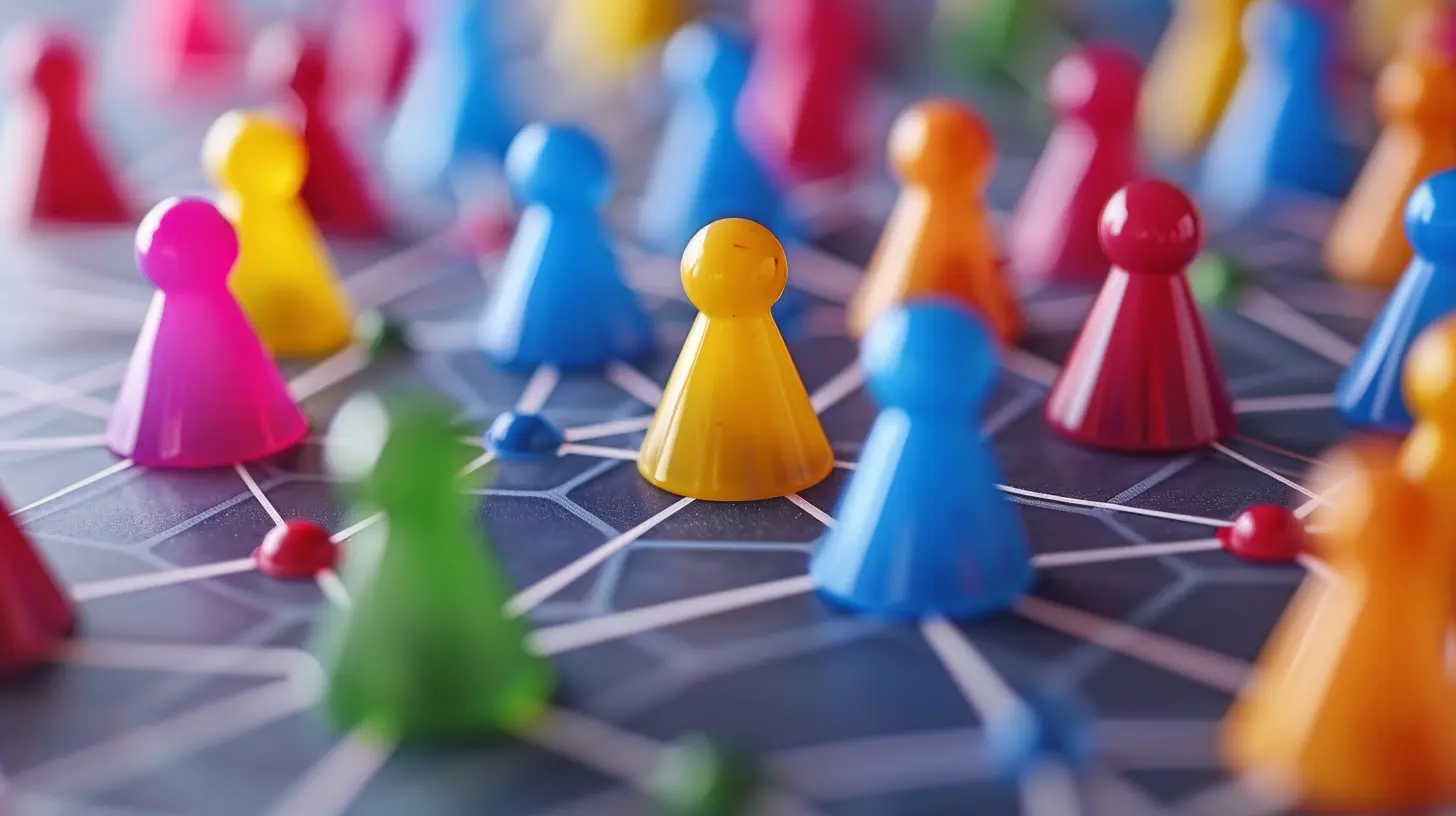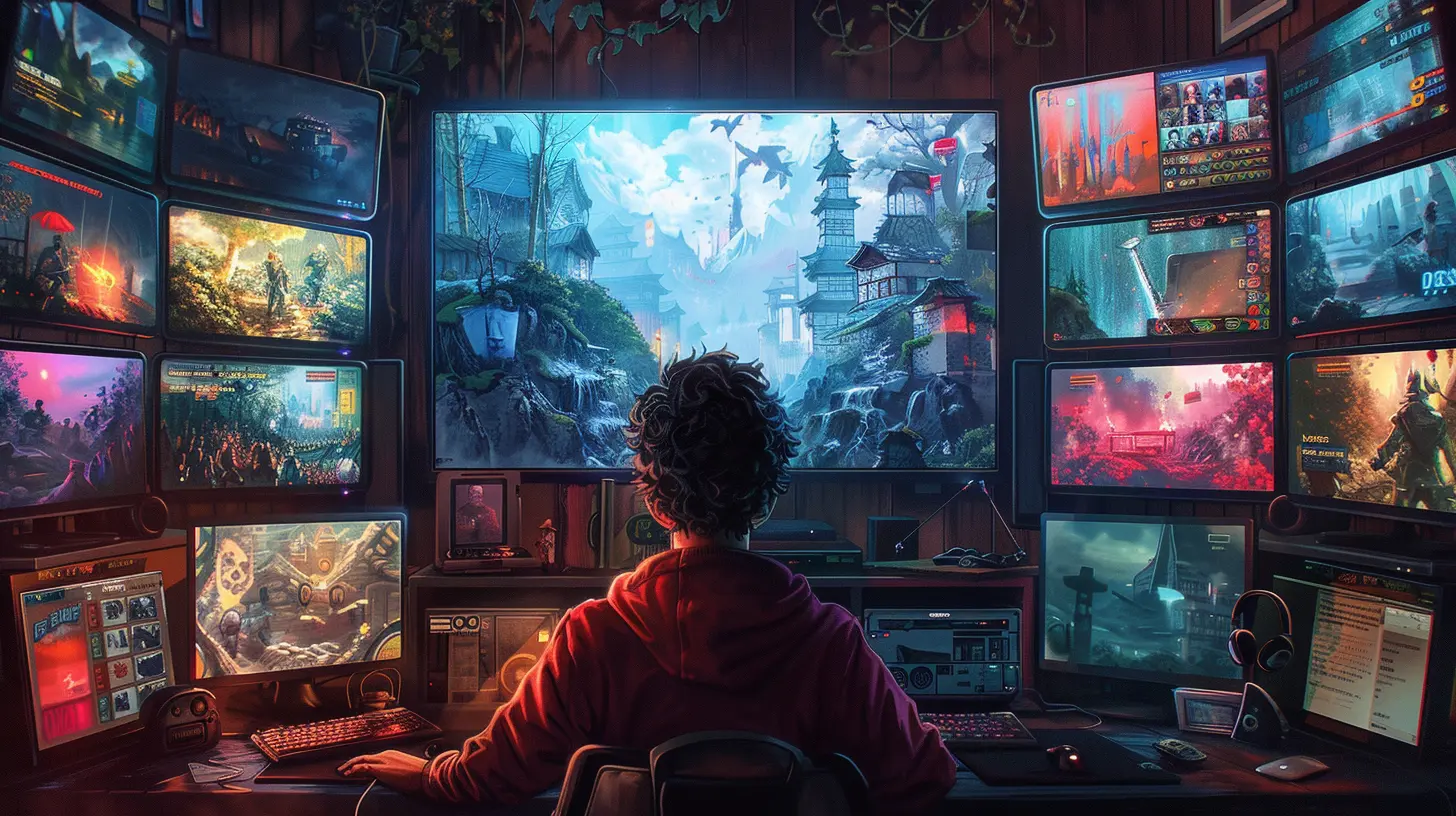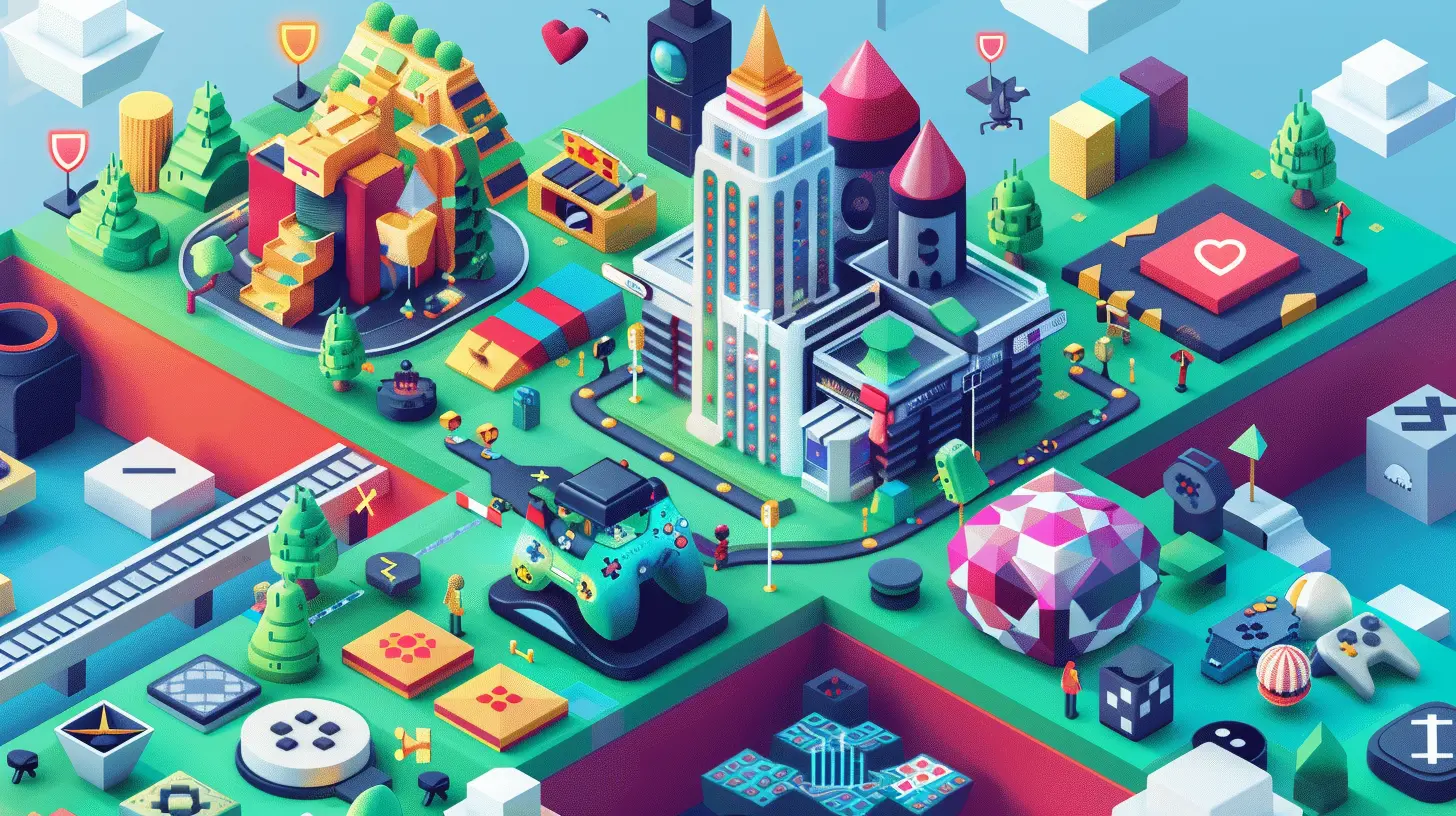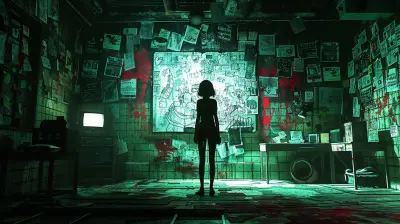Why Social Games Are the Perfect Tool for Virtual Networking
6 August 2025
Let’s face it—networking can be awkward. Whether it's standing around with a lukewarm coffee at a conference or fumbling through small talk during a Zoom meet-and-greet, making real connections can feel like pulling teeth. But what if I told you there’s a fun, natural, and even addictive way to break the ice and build relationships online?
Yep, I’m talking about social games.
Social games—games built around interaction, collaboration, and friendly competition—are quickly becoming a go-to solution for virtual networking. And they’re not just for gamers or techie crowds. Businesses, remote teams, educators, and even entrepreneurs are jumping on the bandwagon for one simple reason: social games work. Let’s dive into why.
What Exactly Are Social Games?
Before we run, let’s walk.Social games are video games designed primarily to be played with others—think multiplayer formats, online communities, or games integrated with social media platforms. They aren’t just about who gets the highest score; they’re about interaction, groups, storytelling, and, most importantly, fun.
From classics like Among Us and Mario Kart, to newer web-based games like Skribbl.io and Codenames Online, there’s something for everyone—no console required.
The Ice Breaker We Never Thought We Needed
Let’s be real. Starting a conversation out of nowhere—especially in a professional setting—can feel like trying to solve a Rubik’s Cube blindfolded. So how do you make it easier?Play a game.
Social games act as natural icebreakers. Instead of forcing small talk, you’re instantly thrown into a shared experience. Maybe you’re working together to escape a virtual room, racing each other in a fantasy world, or even ganging up on someone in a chaotic round of Among Us (sorry, Tim from HR).
Here’s the beauty of it: Games lower the walls. They make people laugh, talk, strategize—and before you know it, everyone’s comfortable and actually enjoying the process.
The Psychology Behind Connection Through Play
Humans are wired to play. Since childhood, play has helped us learn, cooperate, and connect. Social games tap into that same instinct—but in a modern, gamified setting.When we play games with others, our brains release dopamine—the “feel-good” chemical. That dopamine high? It’s super addictive, and when it's paired with shared laughter or teamwork, it creates an emotional bond. Not the awkward "so, what do you do?" bond—the real kind.
That’s why social games create connections that actually stick. They’re emotionally charged moments that people remember—and that’s the kind of networking money can’t buy.
Social Games Create Level Playing Fields
In traditional networking environments, hierarchies and job titles often get in the way. People are intimidated or unsure of their place in the conversation. But once you're thrown into a game where everyone’s a wizard, space marine, or doodler? All bets are off.That CEO? Yeah, he's just another villager trying not to get eliminated.
That intern? She’s now your secret weapon in Pictionary.
Games break down barriers and level the playing field. They equalize roles and put everyone on the same team—or at least on the same digital map. And that’s incredibly powerful for real, meaningful conversations.
Remote Teams Thrive with Social Games
Here’s a stat for you: Studies show that 70% of remote workers feel left out of the workplace. That's a huge number of people flying solo without that much-needed watercooler talk. Social games step in to fill that gap beautifully.From spontaneous five-minute brain teasers to scheduled game nights, incorporating social games into remote team structures can:
- Improve communication
- Build trust
- Increase engagement
- Reduce burnout
And let's be honest—it makes meetings a lot more fun. Instead of another redundant Zoom call, you get something to actually look forward to.
Virtual Events Need a Makeover—Here’s How Social Games Help
Virtual conferences, summits, and webinars are here to stay. But let’s admit it—they can be a little… soul-crushing. Silent attendees, awkward breakout rooms, and very little interaction.Now imagine if, instead of forcing attendees to “network” via forced video calls, you threw them into a team-based game. Think trivia tournaments, scavenger hunts, or interactive simulations. Suddenly, that virtual event goes from meh to memorable.
Hosting social games during virtual events makes attendees:
- Feel included
- Engage with others
- Stay longer
- Actually come back next time
It’s like turning your webinar into a party—with a guest list who actually mingles.
Real-Life Examples You’ll Want to Steal
Let’s look at how some companies and communities are using social games for networking like absolute pros.1. Slack-Based Trivia Games
No fancy setup here—just quick, daily trivia questions delivered to team Slack channels. It’s low-effort, high-engagement, and sparks conversations you’d never expect (Who knew Janet from accounting was a Beatles expert?).2. Twitch Livestream Game Nights
Companies are hosting livestream game nights where employees or community members can watch, chat, and even join in live. It’s kind of like Friday night TV—but everyone’s in the show.3. Social Game Tournaments
Startups are organizing monthly Among Us or Fall Guys tournaments, complete with leaderboards and prizes. It adds healthy competition and something fun to talk about, even after the game ends.4. Gamified Onboarding
New hires don’t want another PowerPoint. But turning their onboarding process into a game—complete with missions, teams, and mini-challenges? Now that’s unforgettable.But Wait… Do Social Games Really Work for Professionals?
You bet they do.Sure, games seem light-hearted, but the connections they build are anything but shallow. People remember who helped them win, who cracked the joke, and who teamed up on that epic comeback. These shared experiences lay the foundation for trust, cooperation, and even future collaboration.
Think of social games like the modern-day golf course—you’re still networking, just in a more relaxed, entertaining way.
How to Get Started With Social Games for Networking
Alright, you’re sold. So how do you actually use social games to network better?Here are a few practical steps:
1. Pick the Right Game
Want collaboration? Try Codenames or Keep Talking and Nobody Explodes.Need quick, casual fun? Go for Skribbl.io or Jackbox Games.
Prefer strategy and mystery? Among Us or Secret Hitler are great picks.
Choose games that match the vibe of your group and don’t require steep learning curves.
2. Plan Ahead
Yes, spontaneous games are fun, but scheduled game sessions work better for larger teams or events. Create a calendar invite, set expectations, and make it part of your regular routine—just like a meeting, but with pixel art and laughter.3. Mix It Up
Rotate games to keep things fresh. Maybe even let different people “host” each session. It not only changes the energy—it gives everyone ownership.4. Encourage Casual Chat
Make room for post-game convos—whether it’s a 5-minute debrief or hanging out in a virtual lounge. That’s where the real networking often happens.Common Concerns (And Why You Shouldn’t Worry)
Still skeptical? Let’s bust some common myths:“Not everyone is a gamer.”
Totally fair. But most social games are intuitive and easy to pick up. Plus, the focus isn’t on skill—it’s on fun.
“It feels unprofessional.”
Networking doesn’t have to be stiff and formal to be effective. In fact, casual interaction often leads to stronger connections.
“We don’t have time for games.”
Think of the time spent gaming as an investment in team cohesion, workplace culture, and stronger communication. It pays off, trust me.
The Future of Social Gaming and Networking
The lines between work, play, and socializing are blurring—and that’s not a bad thing. In an increasingly virtual, remote, and digital-first world, we need new ways to connect. Social games aren’t just a trend—they’re evolving into essential tools for relationship-building in the 21st century.And let’s be honest, wouldn’t you rather bond over a game of Gartic Phone than another “tell us an interesting fact about yourself” roundtable?
So next time you’re planning a team meet-up or networking event, ditch the awkward intros and start loading up the game lobby. Your new favorite coworker—or business partner—might just be one epic move away.
all images in this post were generated using AI tools
Category:
Social GamesAuthor:

Emery Larsen
Discussion
rate this article
2 comments
Soleil Huffman
Social games break barriers, forging authentic connections in the virtual realm. They transform networking into a fun, engaging experience, proving that collaboration and creativity can thrive in every digital interaction!
December 15, 2025 at 4:05 AM

Emery Larsen
Thank you for your insightful comment! I completely agree—social games indeed create meaningful connections and foster collaboration in a fun, engaging way.
Scarlett Curry
Who knew networking could involve so much fun?
August 11, 2025 at 3:34 PM

Emery Larsen
Absolutely! Social games make networking enjoyable by breaking the ice and fostering genuine connections.


